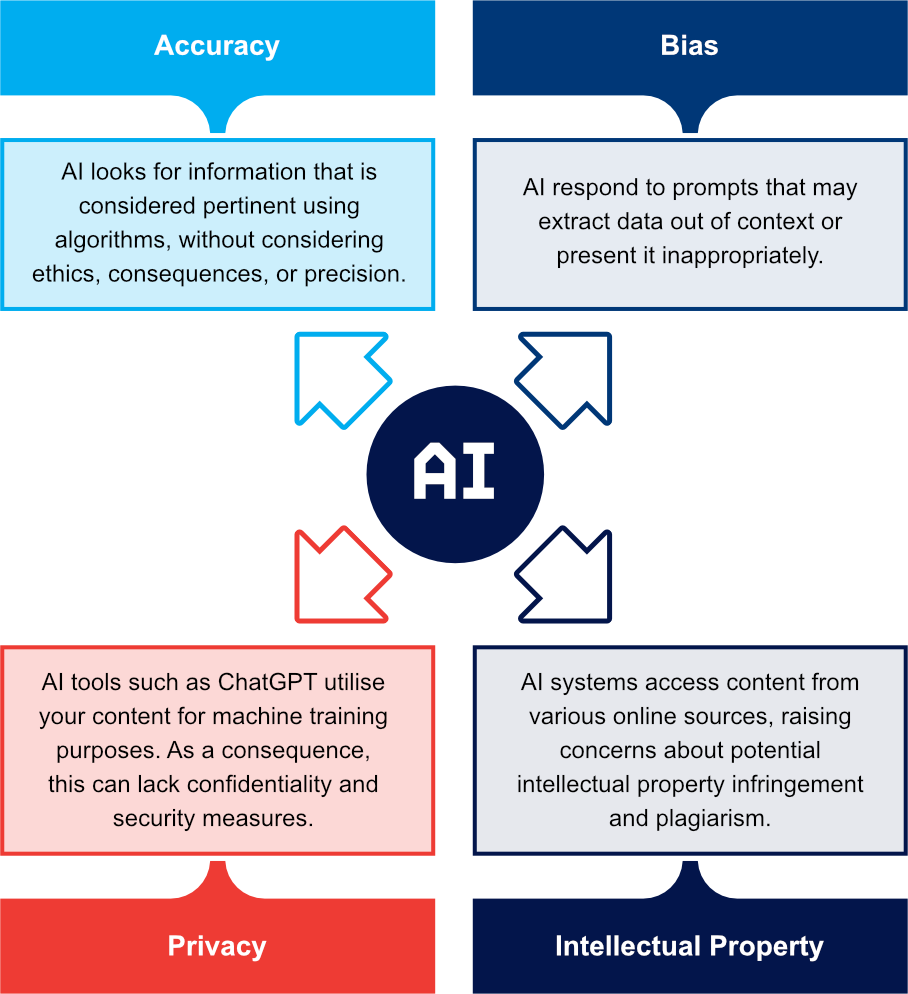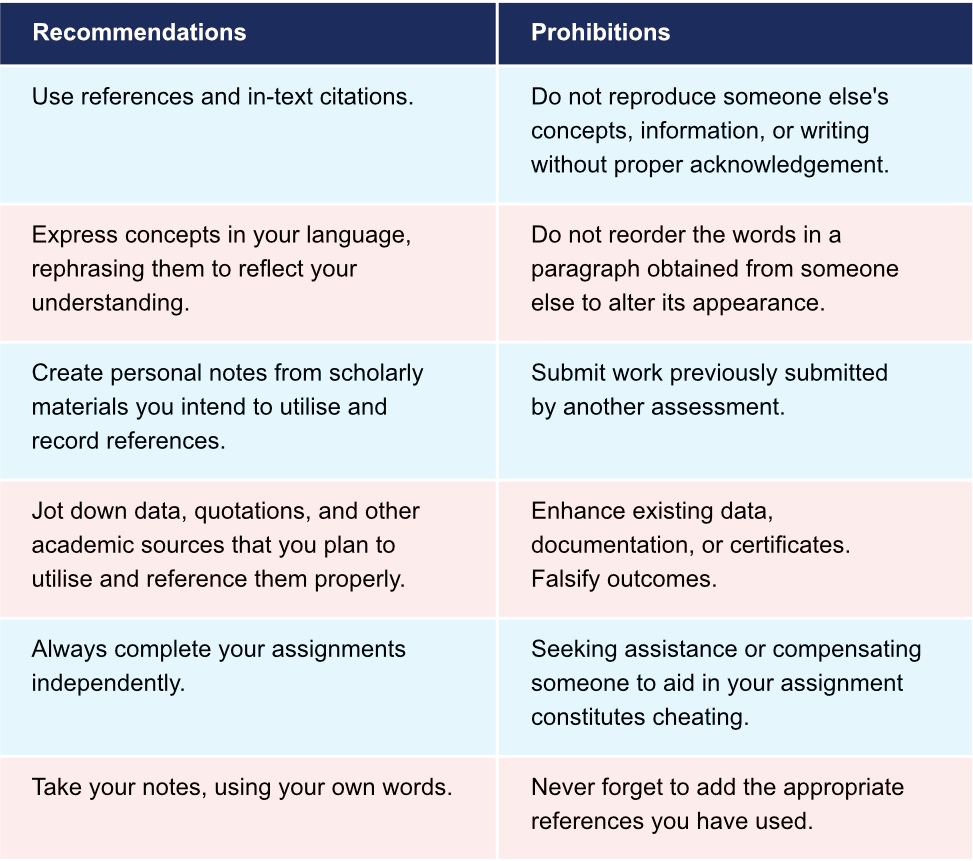Artificial intelligence (AI) encompasses computer systems designed to perform tasks typically requiring human intelligence. These technologies are prevalent in various everyday activities. Additionally, generative AI can produce new content, such as poetry, programming code, or artwork, traditionally associated with human creativity.
In university contexts, AI can help you generate ideas, respond to queries, or find information about specific topics. In this context, it’s crucial to comprehend how to utilise these tools responsibly and ethically, while also recognising situations where AI usage may not be appropriate. Understanding the risks and constraints associated with these technologies is essential.
Several aspects make AI an unreliable tool. Understanding what aspects may get you into trouble is important to acknowledge how to use AI critically.

These are some of the tips you may want to follow:
Compliance with academic integrity is essential for upholding the values of scholarship, promoting personal and academic growth, maintaining credibility and fairness, and avoiding negative consequences for oneself and others. Have a look at the following table that provides recommendations and prohibitions on academic integrity.

Select the following links if you would like to know about how to use ChatGPT responsibly:
